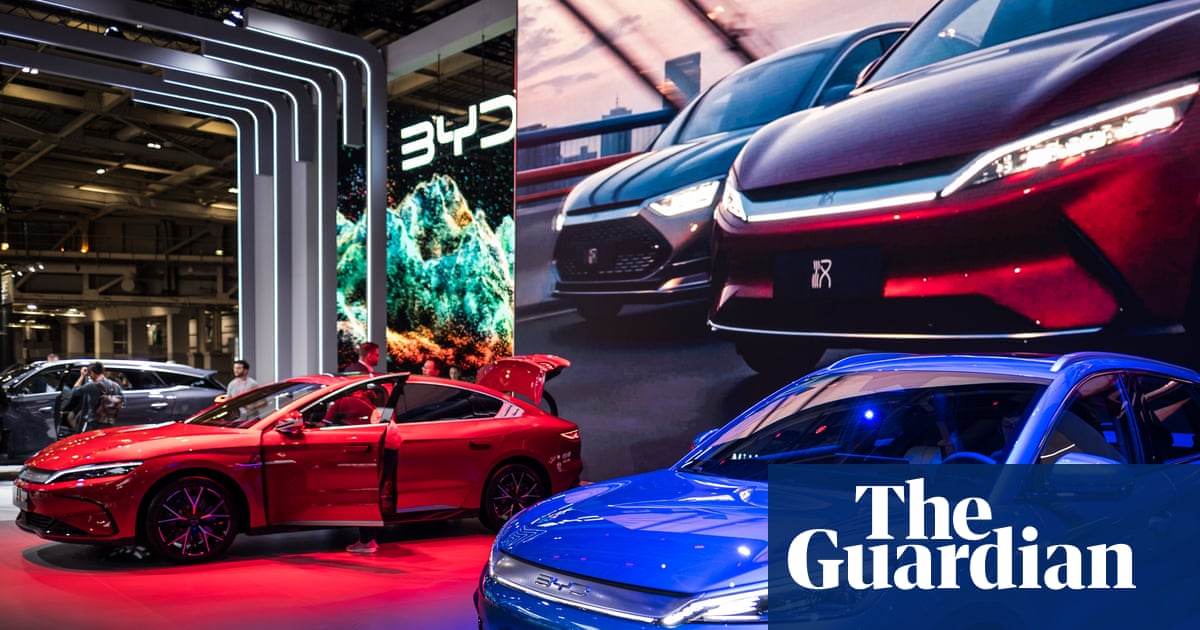Donald Trump will join big oil and technology bosses on Tuesday at a major artificial intelligence and energy summit in Pittsburgh, outraging environmentalists and community organizations. The event comes weeks after the passage of a megabill that experts say could stymy AI growth with its attacks on renewable energy.
The inaugural Pennsylvania energy and innovation summit, held at Carnegie Mellon University, will attempt to position the state as an AI leader, showcasing the technological innovation being developed in the city and the widespread availability of fossil fuel reserves to power them.
At the gathering, Trump will announce $70bn in AI and energy investments for the state, Axios first reported, in a move the event’s host, the Republican Pennsylvania senator, Dave McCormick, says will be a boon to local economies.
But activists say the investment, which will boost planet-heating energy production, will have disastrous consequences for the climate and for nearby communities.
“Pennsylvanians are paying the price for decisions made behind closed doors: higher utility bills, contaminated water, poor air quality, and worsening health,” said Hilary Flint, Pennsylvania field organizing manager at the non-profit Center for Oil and Gas Organizing. Flint signed a Tuesday letter to Pennsylvania’s governor, Josh Shapiro, opposing his plans to work with Trump to expand AI, along with dozens of organizations and individuals.
The event also comes less than two weeks after Republicans on Capitol Hill passed a Trump-backed budget bill which could dramatically increase the spending and effort needed to power AI data centers, thanks to its rollback of green energy tax credits. Renewable energy is almost always cheaper to build and easier to bring online than fossil fuels.
Many tech executives invited to the event have said the availability of wind and solar are essential to the success of AI. Microsoft’s Satya Nadella said last May that powering data centers with renewable energy would “drive down the cost of AI”, while the OpenAI head, Sam Altman, said months earlier that “there’s no way” to grow his industry without a “breakthrough” in affordable clean energy technology.
Tech giants Google and its parent company Alphabet, as well as Meta have also both invested in wind and solar to power data centers. But the oil industry, whose top brass are also at the Pittsburgh summit, lobbied in favor of the mega-bill’s green energy incentive rollbacks.
“It includes almost all of our priorities,” Mike Sommers, president of the American Petroleum Institute, the fossil fuel industry’s largest lobbying group, told CNBC about the legislation. Sommers is on the guest list for the event.
The gathering, to which no public interest consumer or environmental groups were invited, is expected to severely downplay the climate and health consequences of this technological expansion fueled by oil and gas. Data centers used for AI are highly resource intensive, sometimes consuming as much power as entire cities.
By the end of the decade, data processing, mainly for AI, is expected to consume more electricity in the US alone than manufacturing steel, cement, chemicals and all other energy-intensive goods combined, according to the International Energy Agency.
“Political leaders should be investing their time meeting with frontline communities, environmental scientists and renewable energy leaders and using their political muscle to create a just transition to renewable energy — not attending summits that double down on old, dirty energy,” said Jess Conard, Appalachia director at the environmental group Beyond Plastics, who lives in the nearby town of East Palestine, Ohio. “Fossil fuels aren’t progress, no matter how you try to rebrand them.”
Critics have also raised concerns about security and privacy in the wake of AI’s growth. The New York Times and other plaintiffs, including prominent authors Ta-Nehisi Coates, Michael Chabon and Junot Díaz and the comedian Sarah Silverman, are suing OpenAI and Microsoft for copyright infringement; OpenAI has also received scrutiny for reported labor misconduct.
Both OpenAI and Microsoft have defended their positions around copyright infringement allegations.
“Trump’s radical AI plan is yet another example of the president siding with powerful corporations ahead of the American people,” said Tyson Slocum, director of the energy program at the consumer advocacy group Public Citizen.

 3 months ago
55
3 months ago
55

















































